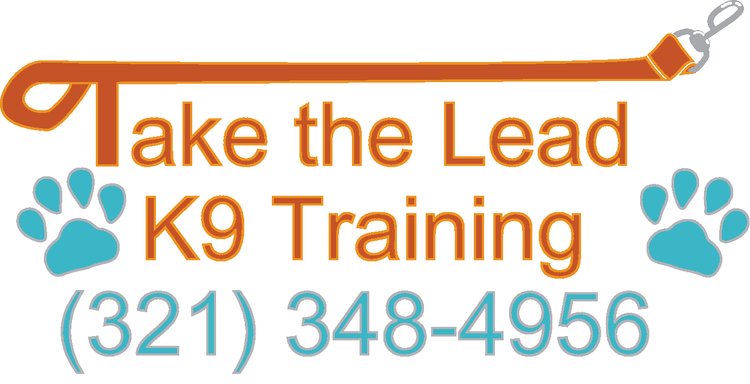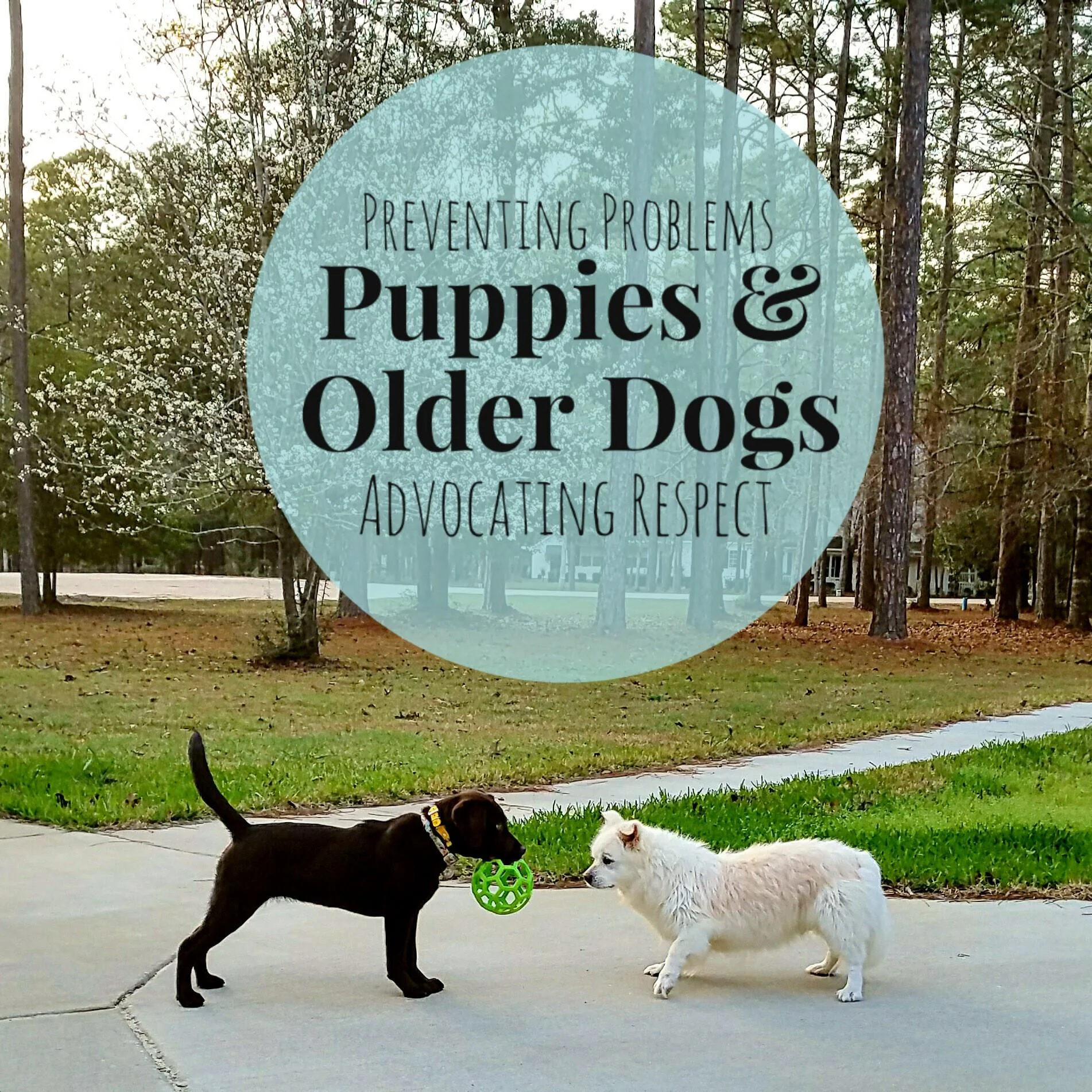Preventing Problems Between Puppies & Older Dogs
There are many reasons why families who have older dogs want to add a puppy or young dog to their lives! There is a lot of value in the older dogs "teaching the puppy" the routine of your house and often a new addition can add a little "spark" back into your elder pup - getting them more active and playful/curious!
With all the exciting things that come with adding a new pup to your pack, there are also some very important elements of introduction that keep your older dog and puppy safe. Being involved, knowing what to look for, and advocating for each animal (not just dogs, but other pets like cats, horses, birds, etc) during the interactions between your puppy and others can prevent conflict later down the road.
As a dog trainer, a very common story is one of a family with two dogs who are fighting. These dogs are often fighting between each other (even though their may be other dogs in the home) and - here's the kicker - used to play all the time. 😣
So what happened? Why would dogs who got along for so long start to fight? Why would dogs who've known each other since one was little have such conflict?
The reality is, that as fun and playful as puppies are, they can be very rude, persistent, and annoying to other dogs who are not puppies (and even some dogs who are)! Puppies tend to not know how to respect boundaries very well and have playtime constantly on their mind...which is perfectly normal! However, how we as the owner handle, what we allow them to do, what we teach them, and the maturing temperament of our puppy can set up these inter-canine relationships to succeed or fail.
Many people make the mistake of letting the dogs "work it out" and expect their older dog to lay down the rules for the pupper. The problem with that philosophy is that many puppies don't take the hint the first time...or the 10th! Unless your elder dog is simply the most socially sound, bomb proof, fair but firm, puppy raiser for life kind of dog, carrying the burden of being the one disciplining and correcting is hard and can become emotionally draining/frustrating. There is a TON of value in older dogs correcting puppies (and the pups need it!) but your older dog should not feel like they are constantly policing and entertaining the puppy...and that's what often ends up happening, unfortunately.
When an older dog is constantly being egged on to play, chewed on, climbed on, barked at, having their space invaded, having their food/resources compromised, and over and over issuing corrections (that are increasingly getting firmer) but NOT seeing the puppy back off (some pups when really worked up think the other dog is playing 🙄) your older dog will become more and more frustrated and before you know it you have one of two things: a shut down and uncomfortable older dog OR the beginning of a long run of dog fights.
It's an unfortunate reality, but the "let them work it out method" is just really unfair to your older dog. Eventually the older dog over corrects or actually bites the puppy, and then gets labled as aggressive or the problem - when really, they wanted to avoid this trouble so long, but were not advocated for by the humans around them. Even in dynamics where they have a playful relationship, most older dogs tire our and arn't always game for play, but puppies are - those moments where pup keeps going and older guy has to correct constantly can often build tension and frustration. Dogs develop grudges towards each other after a while, and when the puppy begins to start into adolescence (around 8mos +) the fights start to become more frequent and intense because pup is now pushing boundaries, more comfortable in the relationship, and trying to establish a stronger role in the pack as he matures. Basically, they get tired of cranky old man giving them crap when they want to do something, so they lay it right back into him...and before you know it you have doggie grudges causing explosive fights with even the slightest look, any excitement in the house, resources around, or too close into each other's space.
Dog trainers see this A LOT, unfortunately - not just with puppy and adult dog dynamics, but any pack dynamics where dogs are putting too much pressure on each other and a human is missing the signs.
So, what can we do to prevent this stuff from happening?
- Don't share resources: allow your dogs to eat, take treats, chew bones in peace. No dog should be pressuring the other and going into their bowl and taking their things. I suggest feeding inside of their kennels so everyone has privacy.
- Crate train your puppy: Teach your puppy how to settle down and rest comfortably in their kennel. Your older dog will need a break from feeling like a baby sitter, and just like an over-tired human baby, your young pup needs nap/down times. Your puppy should have it's OWN crate, not sharing it with your other dog(s).
- Never leave your puppy unsupervised with another pet. Keep a long line/lead on your puppy when around other animals so you can easily remove them/pull them away if they are overwhelming others. Develop a great recall and then you can get rid of the long line :)
- TRAIN YOUR PUPPY! Puppies will become obsessed with the other dogs in the house because the love to PLAY - make sure you are becoming a valuable role in their life by spending time alone with your puppy. Be careful of creating a dependency on the other dog by having them together all the time. Training everyday together, walking just the two of you, etc helps build your bond. It also allows you to start teaching things like good manners and the Place Command (which will allow you to start to teach your pup to practice impusle control and stay calm, in their spot, for a duration of time...again, giving your dog a break).
- Puppy Playtime: Find a local trainer, friends with other well balancrd young dogs, or a good doggie daycare that will give your puppy an opportunity to be rough and rowdy once a week! This saves your older dogs (your cats, you, and your kids!) from being that outlet for them :)
- Read your older dog: How do they feel about the puppy? Can you seem them getting annoyed, tense, trying to get away? Advocate for them and remove the puppy (most likely) very frequently. This will show your older dog you are aware of their feelings AND you can start to show puppy boundaries through cause and effect (obnoxious pup = no play. Tense old dog = move away).
The more your older dog sees you taking the reigns and making the puppy listen, become more predictable, and respectful, the more gracious they will be that you are their leader. Both puppy and older dog will find trust, predictability, and respect for you because you are helping them be a calm, respectful, and peaceful existing pack :) ❤
**Puppy in this context can be talking about dogs anywhere from 8 weeks old to 2 years old! It's referring to those with that wonder and playfulness we love, that also drives everyone crazy at times! 😆**

